Over the weekend, the Chelsea Area Players — not to be confused with the Chelsea Area Playas, which doesn’t actually exist — put on a production of Joseph and the Amazing Technicolor Dreamcoat. If you never saw that musical done by the professionals, then you never saw Donny Osmond sold into slavery by his brothers.
Anyway, it’s a musical based on the Biblical story of Joseph. As is usually the case, the book is better than the musical, but the musical is still a lot of fun. The CAP did a great job, too. I’m no theater expert — otherwise I’d spell it “theatre” — but I enjoyed the production.
(I took a lot of photos, so I’m splitting this into two blog posts.)
The story began with Joseph hanging out with a group of kids and singing. In the world of musicals, this is perfectly normal.
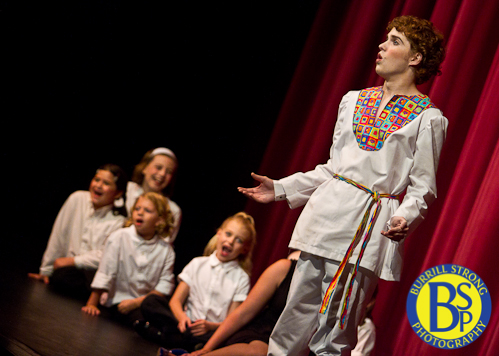
Eventually the curtain opened, and the three narrators started narrating.
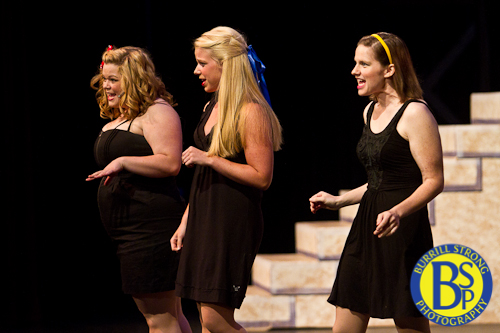
Jacob enjoyed listening to the song describing his successful family business.
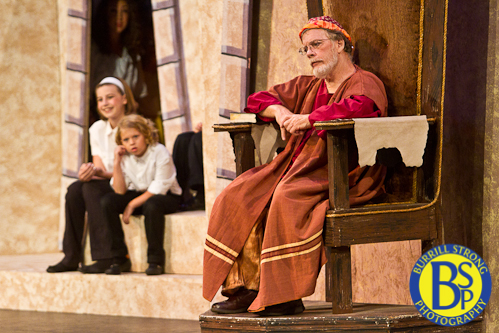
Jacob’s family enjoyed singing about his successful family business.
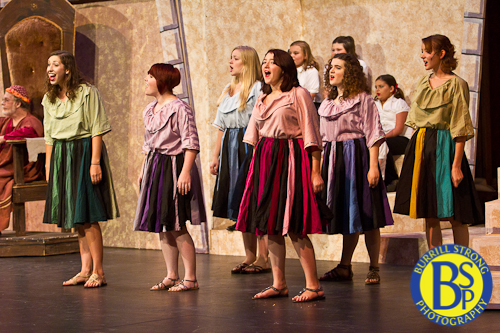
Still, it wasn’t one big happy family. Jacob tended to favor Joseph, a disparity that made his brothers jealous enough to plot his demise.
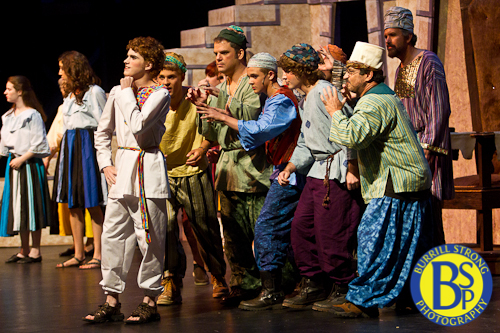
They couldn’t follow through with their plot that time, though, so they had to settle for watching Joseph show off his snazzy new coat. (This is the coat that’s to blame for the musical’s extremely long title.)
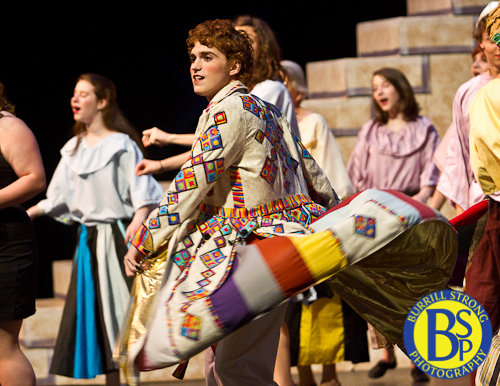
Joseph also irked his brothers with his strange dreams. Well, it wasn’t so much that he had strange dreams, but that he interpreted his dreams to mean that his brothers would one day bow down to him. I can see why that would be problematic for familial relationships.
The kids we saw in the opening photo contributed by illustrating Joseph’s dreams. Fortunately, his brothers harbored no ill will toward them.
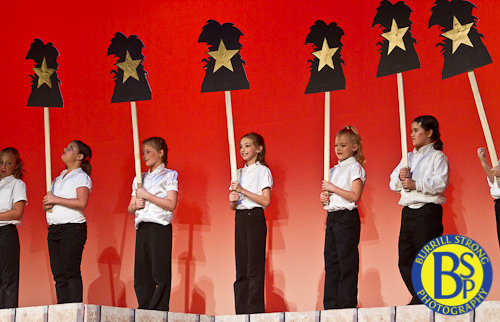
Joseph let them know he appreciated their efforts.

Eventually Joseph’s brothers followed through with their plot: they sold him to a “hairy bunch of Ishmaelites,” covered his fancy long-winded coat in blood and returned home to tell their father his favorite son had been killed. Since everybody knows country music is the best vehicle for bad news, the brothers donned cowboy hats and broke the news in an exaggerated twang. (Note: this may or may not be Biblically accurate. Hint: it’s not.)
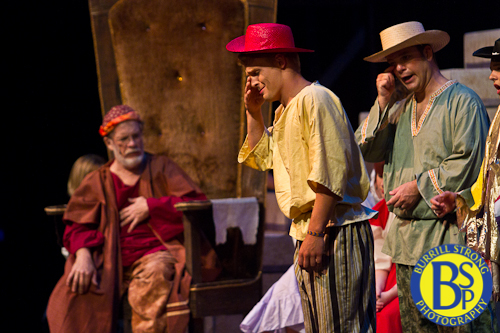
Poor, poor Joseph ended up in Egypt, where the hairy bunch of Ishmaelites sold him to a wealthy man named Potiphar.
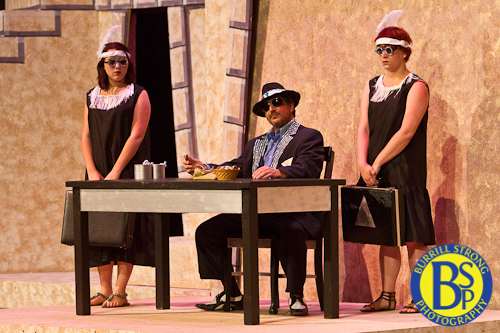
Sadly, Potiphar’s wife wasn’t committed to their marriage, and Joseph caught her wandering eye. She worked hard to express her untoward ambitions to Joseph.


Joseph managed to resist her persistent efforts, but she raised enough of a fuss that Potiphar burst onto the scene. Presuming Joseph was to blame for this scandalous behavior, Potiphar sent him to jail.
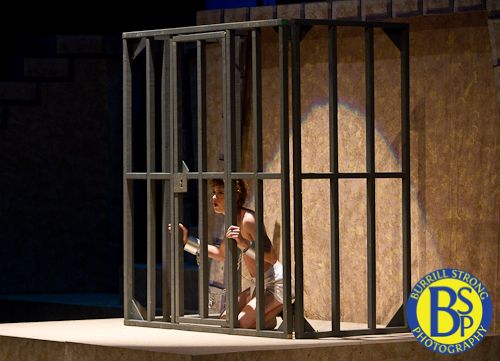
He responded by singing.
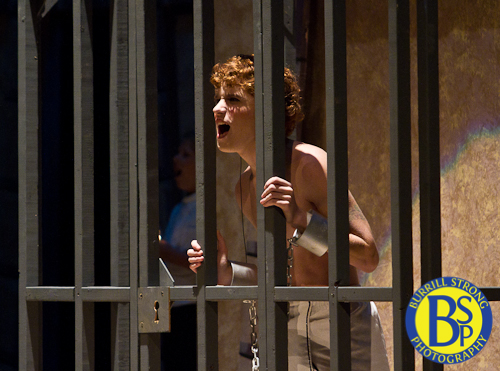
After he finished his song, two more inmates joined his authentic community: the baker and the butler. I know, I know, it’s starting to sound like a game of Clue. Just remember that this story was around long before Clue.
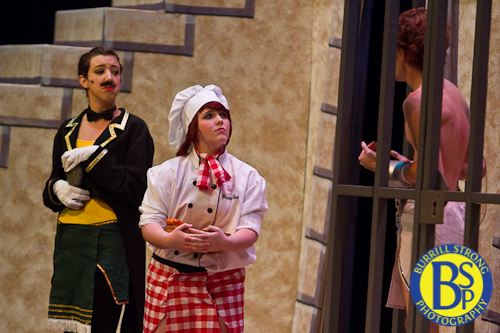
The baker and butler had been having strange dreams, and they wanted Joseph to interpret them into plain English. (Or into plain Whatever Language They Spoke.) He obliged, and as with many situations in musicals, singing and dancing ensued.
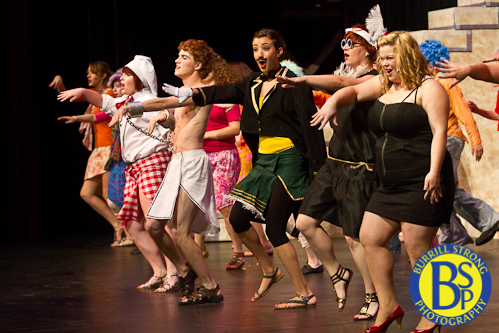
(Just a thought: if life actually was like a musical, would we have theatrical productions called talkies? And would we make sarcastic comments about how nobody would ever actually break out into talking in real life? I hope so.)

They were kind enough to let Joseph out of his cell so he could sing and dance properly. They weren’t too kind, though: they wouldn’t remove his shackles.
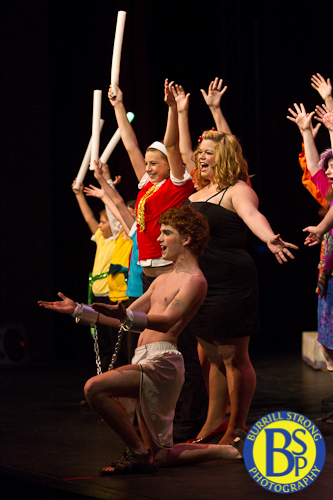
The first act ended with a colorful flourish.
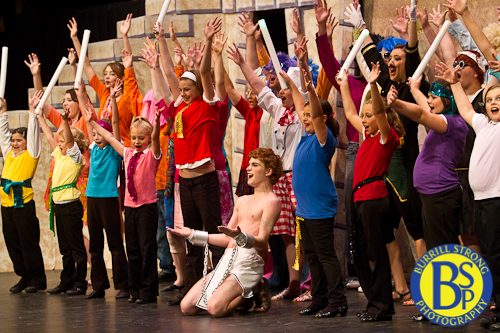
Be sure to come back for the second act!

I love what you’re doing with this, Burrill. You stayed for the whole show, then? Well, you’re doing a fine job of summarizing the plot, with your wonderfully funny comments thrown in.
You are right – the book is better than the show, what with the correct details and all. It’s a real page turner! This has always ranked high among my favorite Biblical accounts, as Joseph so clearly forgives his brothers’ heinous behavior and explains what he has learned about the faithfulness of God – that what was meant for evil, God used for good.
I like the foreshadowing of the Narrators’ at the beginning when they ‘sing’ that they know that everything turns out okay because they’ve read the end of the book. We have that same assurance today – we know Who wins because we’ve read the end of the Book. 🙂
I am looking forward to reading part two and seeing some more of your ‘amazing technicolor’ photography!
What happens next?
WHAT HAPPENS NEXT?!?